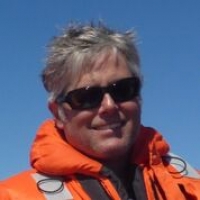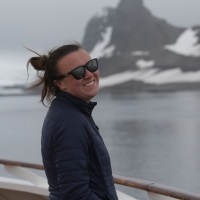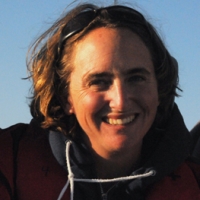By Dawn Barlow, PhD student, OSU Department of Fisheries and Wildlife, Geospatial Ecology of Marine Megafauna Lab
Every two years, an international community of scientists, managers, policy-makers, educators, and students gather to share the most current research and most pressing conservation issues facing marine mammals. This year, the World Marine Mammal Conference will take place in Barcelona, Spain from December 7-12, and the whole GEMM Lab will make their way across the Atlantic to present their latest work. The meeting is an international gathering of scientists ranging from longtime researchers who have shaped the field throughout the course of their careers to students who are just beginning to carve out a niche of their own. This year’s conference has 2,500 registered attendees from 95 different countries, 1,960 abstract submissions, and 700 accepted oral and speed talks and 1,200 posters. Needless to say, it is an incredible platform for learning, networking, and putting our work in the context of research taking place around the globe.

This will be my third time at this conference. I attended in San Francisco in 2015 as a wide-eyed undergraduate and met with Leigh, who I hoped would soon become my graduate advisor. I also presented my Masters research at the conference in Halifax in 2017. This time around, I will be presenting findings from the first two chapters of my PhD. Looking ahead to the Barcelona 2019 meeting and having some sense of what to expect, I feel butterflies rising in my stomach—a perfect mixture of the nerves that come with putting your hard work out in the world, eagerness to learn and absorb new information, and excitement to reconnect with friends and colleagues from around the world. In short, I can’t wait!
For those of you reading this blog that are unable to attend, I’d like to share an overview of what the GEMM Lab will be presenting at the conference. If you will be in Barcelona, we warmly invite you to the following posters, speed talks, and oral presentations! In order of appearance:

What do Oregon gray whales like to eat? Do individual whales have individual foraging habits? To learn more visit Lisa Hildebrand’s poster “Investigating potential gray whale individual foraging specializations within the Pacific Coast Feeding Group”. (Poster presentation, Session: Foraging Ecology – Group A, Time: Monday, 1:30-3:00pm)

Did you know it is possible to measure the mechanics of how a blue whale feeds using a drone? The GEMM Lab’s all-star drone pilot Todd Chandler will present a poster titled “More than snacks: An analysis of drone observed blue whale surface lunge feeding linked with prey data”. (Poster presentation, Session: Foraging Ecology – Group A, Time: Monday, 1:30-3:00pm)

The GEMM Lab’s newest student Clara Bird will present a poster on work she conducted with the Marine Robotics and Remote Sensing lab at Duke University using new technologies and approaches to investigate scarring patterns on humpbacks. Her poster is titled “A comparison of percent dorsal scar cover between populations of humpback whales (Megaptera novaeangliae) off California and the Western Antarctic Peninsula”. (Poster presentation, Session: New Technology – Group B, Time: Tuesday, 8:30-9:45am)

GEMM Lab PI Leigh Torres will synthesize some exciting new analyses from the GEMM Lab’s gray whale physiology and ecology research off the Oregon Coast. Is it stressful to feed in a noisy coastal environment? Leigh will discuss the latest findings in her talk, “Sounds of stress: Evaluating the relationships between variable soundscapes and gray whale stress hormones”. (Oral presentation, Session: Physiology, Time: Tuesday, 11:30-11:45am)

Carrying on with exciting new findings about Oregon gray whales, Leila Lemos will present a speed talk titled “Stressed and slim or relaxed and chubby? A simultaneous assessment of gray whale body condition and hormone variability”, in which she will summarize three years of analysis of how gray whale health can be quantified, and how physiology is influenced by ocean conditions. (Speed talk, Session: Physiology, Time: Tuesday, 11:55am-12:m)

Can we predict where blue whales will be using our understanding of their environment and prey? Can this knowledge be used for effective conservation? I (Dawn Barlow) will give a presentation titled “Cloudy with a chance of whales: Forecasting blue whale occurrence based on tiered, bottom-up models to mitigate industrial impacts”, which will share our latest findings on how functional ecological relationships can be modeled in changing ocean conditions. (Oral presentation, Session: Habitat and Distribution I, Time: Wednesday, 10:15-10:30am)

The GEMM Lab’s most recent graduate Solene Derville will present work she has conducted in New Caledonia regarding humpback whale diving and movement patterns around breeding grounds. Her speed talk is titled “Whales of the deep: Horizontal and vertical movements shed light on humpback whale use of critical pelagic habitats in the western South Pacific” (Speed talk, Session: Behavioral Ecology II, Time: Wednesday, 11:35-11:40am)

Can sea otters make a comeback in Oregon after a long absence? Dom Kone takes a comprehensive look at how Oregon coast habitat could support a reintroduced sea otter population in his speed talk, “An evaluation of the ecological needs and effects of a potential sea otter reintroduction to Oregon, USA”. (Speed talk, Session: Conservation II, Time: Wednesday, 2:45-2:50pm)

Alexa Kownacki will share her latest findings on dolphin distribution relative to static and dynamic oceanographic variables in her speed talk titled “The biogeography of common bottlenose dolphins (T. truncatus) of the southwestern USA and Mexico”. (Speed talk, Session: Habitat and Distribution II, Time: Wednesday, 3:35-3:40pm)
Other members of the Marine Mammal Mnstitute who will present their work include: Scott Baker, Debbie Steel, Angie Sremba, Karen Lohman, Daniel Palacios, Bruce Mate, Ladd Irvine, and Robert Pitman. For anyone planning to attend, we look forward to seeing you there! For those who wish to stay tuned from home, keep your eye on the GEMM Lab twitter page for our updates during the conference and follow the conference hashtag #WMMC19, and look forward to future blog posts recapping the experience.

Congratulations to the GEMM Lab!